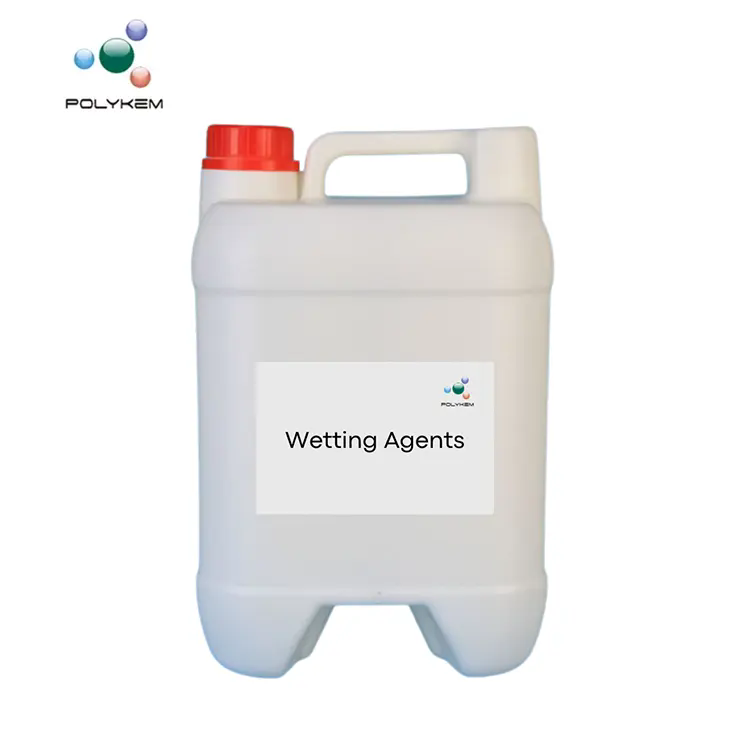How Do Functional Additives Enhance Material Performance?
2025-08-19
Functional additives are specialized compounds designed to improve the performance, durability, and usability of base materials such as plastics, coatings, adhesives, textiles, and construction products. Unlike primary raw materials that form the bulk of a product, functional additives work at micro-levels to modify or enhance specific properties—whether it is strength, flexibility, resistance, or environmental sustainability.
In today’s highly competitive manufacturing landscape, industries cannot rely solely on raw polymers, resins, or metals. Market demand requires higher levels of performance, safety, and sustainability. This is precisely where functional additives come into play. They provide critical advantages such as:
-
Improved processing efficiency – enabling manufacturers to cut costs and reduce production time.
-
Enhanced durability – offering products longer service life and reduced maintenance.
-
Performance customization – adjusting physical and chemical attributes according to application requirements.
-
Environmental benefits – supporting the development of eco-friendly solutions through biodegradable and non-toxic modifications.
From automotive interiors that resist heat and UV exposure, to food packaging that prevents contamination, functional additives serve as invisible yet indispensable contributors to product quality.
Key Functions of Functional Additives
| Category | Functionality | Application Examples |
|---|---|---|
| Plasticizers | Increase flexibility, reduce brittleness | PVC cables, flooring, films |
| Stabilizers | Prevent degradation due to heat, light, or oxidation | Outdoor plastics, packaging materials |
| Flame Retardants | Reduce flammability and slow fire propagation | Electronics, construction materials |
| Antioxidants | Protect against thermal and oxidative degradation | Automotive parts, electrical components |
| UV Absorbers | Shield materials from ultraviolet radiation damage | Outdoor coatings, textiles, films |
| Anti-static Agents | Reduce static charge accumulation | Packaging, electronics, textile industry |
| Biocides & Antimicrobials | Inhibit microbial growth and contamination | Healthcare products, water treatment, coatings |
| Rheology Modifiers | Adjust viscosity and flow properties | Paints, adhesives, lubricants |
This table shows that functional additives are not simply supplementary but foundational in defining product performance across multiple sectors.
What Makes Functional Additives Essential for Manufacturers?
The demand for performance materials is intensifying across industries. For example, packaging must now extend shelf life while remaining recyclable, and construction materials must balance strength with fire safety standards. Functional additives bridge the gap between raw material limitations and advanced performance requirements.
Enhancing Product Performance
Functional additives allow manufacturers to tailor products to exact specifications. A coating may require resistance against moisture, UV exposure, and abrasion—all achievable through carefully chosen additives. Similarly, polymers reinforced with antioxidants and flame retardants last longer, even under extreme conditions.
Improving Sustainability
Sustainability has become a non-negotiable aspect of modern manufacturing. Additives now include eco-friendly formulations, such as biodegradable plasticizers or halogen-free flame retardants. These innovations allow companies to meet environmental regulations without compromising on performance.
Cost Efficiency and Process Optimization
Functional additives can reduce production costs by improving processing characteristics. For instance, rheology modifiers improve flow during extrusion, reducing energy consumption and machine wear. Stabilizers, on the other hand, prevent material waste caused by degradation during processing.
Global Market Perspective
According to recent market studies, the demand for functional additives is growing steadily, particularly in Asia-Pacific and Europe. Packaging, automotive, construction, and electronics are the leading sectors driving this growth. For businesses, adopting high-quality additives is not just a technical choice but a competitive necessity.
Product Parameters and Technical Insight
To evaluate the effectiveness of functional additives, technical parameters must be considered. Below is an example of common additive categories with their core parameters:
| Additive Type | Key Parameters | Performance Outcome |
|---|---|---|
| Plasticizers | Compatibility, volatility, migration resistance | Enhanced flexibility, reduced cracking |
| Stabilizers | Thermal stability, UV resistance, oxidative resistance | Long-term durability, improved outdoor performance |
| Flame Retardants | Limiting oxygen index (LOI), decomposition temperature | Reduced fire spread, compliance with safety standards |
| Antioxidants | Processing stability, long-term heat aging performance | Resistance to oxidation, extended service life |
| UV Absorbers | Absorption wavelength, photostability | Protection against fading, brittleness prevention |
| Biocides | Spectrum of microbial activity, leachability, durability | Long-term protection against mold, bacteria, and fungi |
These parameters ensure that functional additives deliver measurable improvements and meet international compliance requirements. The right formulation must be chosen based on end-use conditions such as temperature, humidity, mechanical stress, and regulatory constraints.
FAQs and Industry Applications
FAQ 1: What are Functional Additives and why are they important?
Functional additives are specialized compounds introduced in small quantities to improve the physical, chemical, or environmental properties of base materials. They are essential because they extend product durability, optimize performance, and ensure compliance with safety and sustainability standards.
FAQ 2: How do Functional Additives improve sustainability in manufacturing?
Functional additives contribute to sustainability by enabling recyclable materials, reducing energy consumption during processing, and introducing eco-friendly formulations such as non-toxic stabilizers and biodegradable plasticizers. This allows manufacturers to align with global environmental regulations and reduce their carbon footprint.
The Future of Functional Additives with Polykem
Functional additives are no longer optional; they are essential in creating high-performance, safe, and sustainable materials across industries such as packaging, automotive, electronics, and construction. Their role in modern manufacturing extends from improving processing efficiency to ensuring compliance with strict safety and environmental standards.
As industries continue to demand innovative solutions, companies like Polykem provide advanced formulations that meet global quality benchmarks while supporting customers in achieving higher performance and sustainability goals.
If you are looking to enhance your products with cutting-edge functional additives, contact us to learn how Polykem can deliver customized solutions tailored to your needs.
